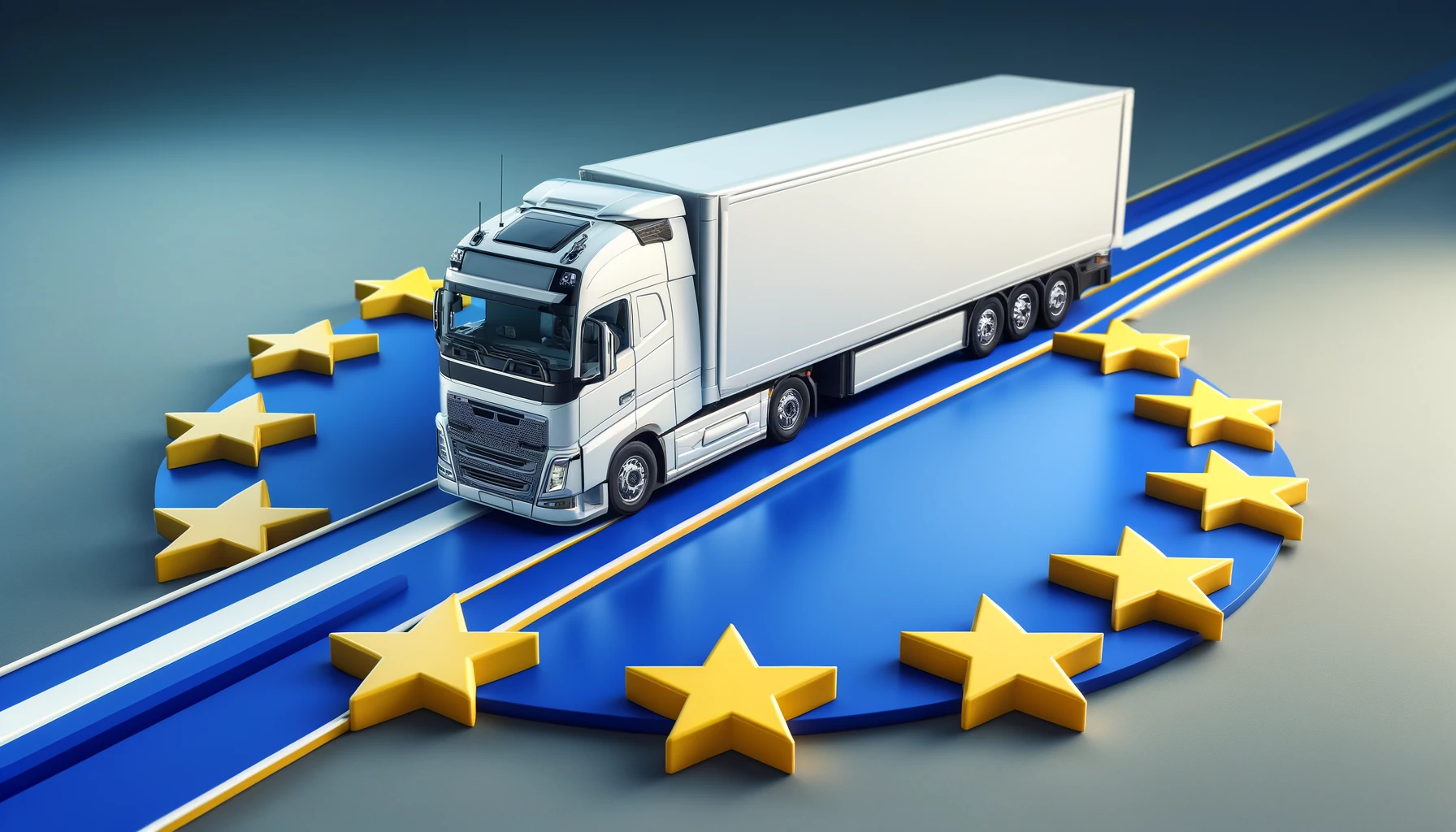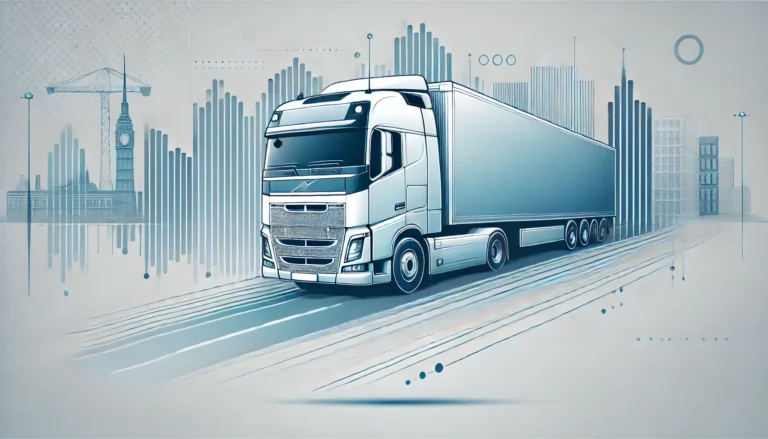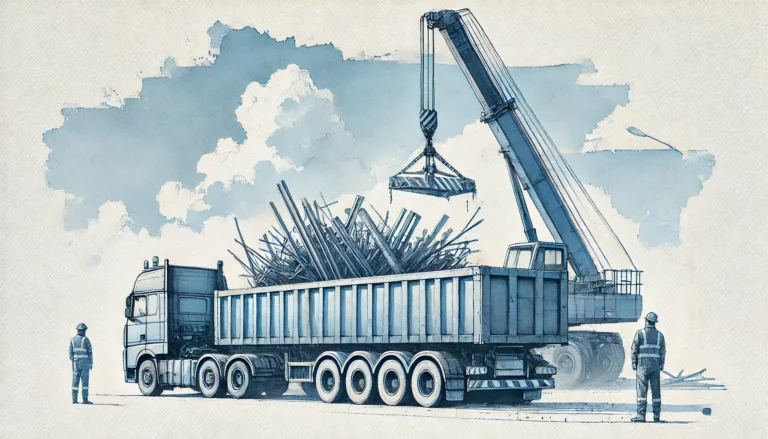The impact of EU policies on transport and logistics
The transportation and shipping industries are vital to Europe’s economy, supporting growth and facilitating global trade. Despite strict regulations emphasizing safety, sustainability, and fair competition, companies must understand how EU policies impact these sectors to enhance efficiency and comply with the law.
European regulations affect all areas of transportation and logistics, from setting emission standards for vehicles to managing the transportation of waste across borders. These policies aim to protect the environment and improve efficiency in a unified market. The waste carrier license is a key regulation that ensures industry standards are upheld.
The framework of EU transport and logistics regulations
EU policies covering transport and logistics are comprehensive and designed to address multiple aspects of the industry. Regulations such as the EU’s Mobility Package aim to improve working conditions in the sector, reduce carbon emissions, and ensure operational safety across member states. Navigating these regulations effectively requires a strong understanding of them and careful strategic planning.
Do you want to order waste carrier licence? Contact us:
office@wastetransportsolutions.eu
Waste carrier licence
Obtaining a waste carrier licence is mandatory for companies transporting waste in and across EU countries. This license serves as a gatekeeper, ensuring that all operators meet strict criteria for the safe and environmentally sound handling of waste. Compliance with this requirement demonstrates a company’s commitment to upholding EU environmental standards.
For example, a transport company moving recycled material to Germany must hold a valid waste carrier permit to operate legally in this country. Said permit not only facilitates smoother operations across borders but also assures clients and partners of the company’s credibility and legal compliance.
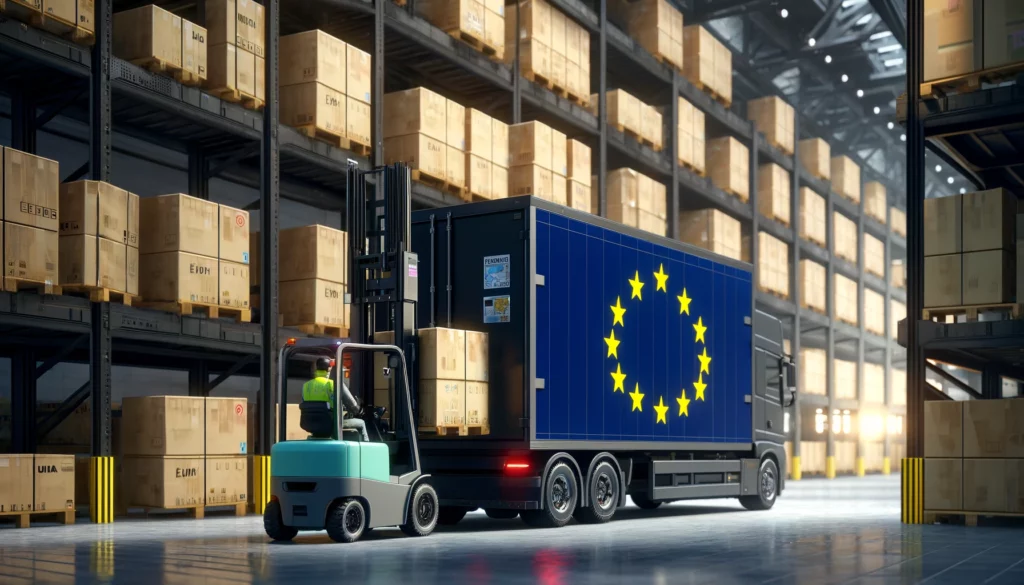
Impact of EU regulations on transport efficiency
EU regulations undoubtedly shape the operational landscape for transport and logistics in Europe. While these rules ensure higher standards of operation, they also pose challenges. Companies must invest in cleaner technologies and adopt more efficient logistics strategies to comply with stringent EU standards.
However, these investments often lead to significant improvements in efficiency. For instance, regulations promoting the use of more fuel-efficient vehicles have reduced fuel costs for many companies. The integration of digital tools for route and load optimization further enhances this efficiency, showcasing how compliance can also drive innovation.
Challenges faced by the transport and logistics industry
Navigating EU regulations is not without its challenges. The complexity and cost of compliance can be significant, particularly for smaller operators. The requirement to obtain various permits, like the waste carrier licence, involves navigating bureaucratic processes and can be time-consuming.
Additionally, the variability of regulations across EU member states can complicate cross-border operations. For instance, different countries may have divergent interpretations of what constitutes hazardous waste, affecting companies with pan-European operations.
Advantages of regulatory compliance
Despite these challenges, compliance with EU regulations, including obtaining the necessary waste carrier permit, offers substantial benefits. Companies that adhere to the rules can access broader markets and are often seen as more reliable and sustainable partners. This reputation can be a significant competitive advantage.
Moreover, compliance encourages companies to innovate and improve their operational practices. Those who invest in cleaner technologies and more efficient processes often find that these investments pay off not just in compliance, but in reduced operational costs and improved service quality.
Technological innovations driven by regulations
EU regulations have been a significant driver of technological innovation in the transport and logistics industry. For instance, the push for lower emissions has spurred the adoption of electric and hybrid vehicles in waste transport fleets. The use of advanced software for managing logistics operations is another area where innovation has been particularly notable.
These technologies not only help companies comply with stringent regulations but also improve their operational efficiency and environmental footprint. They demonstrate how regulatory pressures can lead to advancements that benefit the industry as a whole.
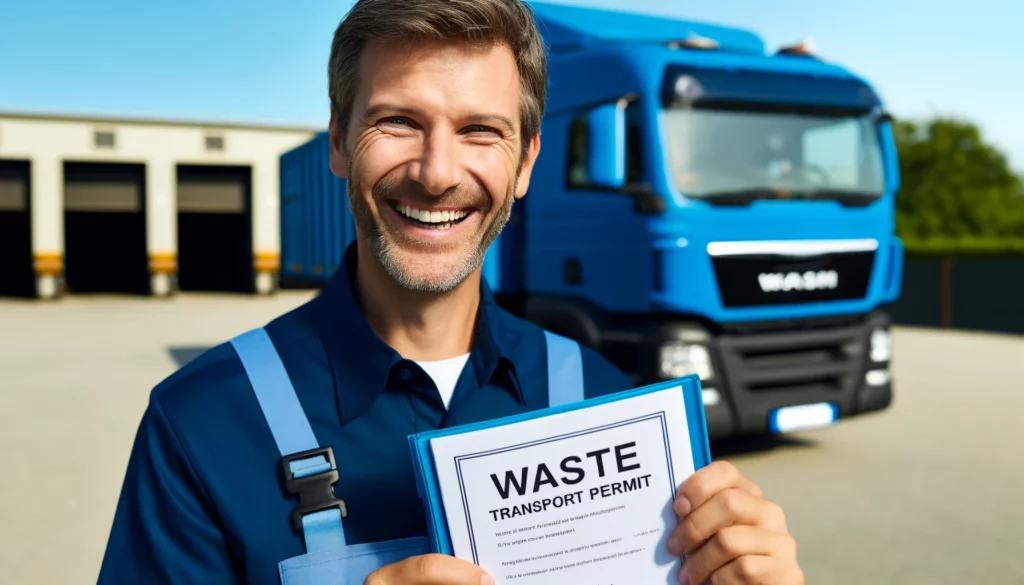
The role of the waste carrier licence in sustainable practices
The waste carrier licence is pivotal in promoting sustainable practices within the transport and logistics industry. By enforcing standards for waste transport, the EU ensures that environmental impacts are minimized. Companies holding this licence are part of a Europe-wide effort to enhance sustainability in waste management.
The successful implementation of these regulations can be seen in the increased rates of recycling and reduced instances of illegal waste dumping. Companies that actively engage in these efforts not only comply with the law but also contribute positively to environmental sustainability.
Future trends in EU transport and logistics regulations
As environmental concerns continue to gain prominence, future EU regulations are likely to become even more stringent. Companies in the transport and logistics sector can expect new standards for emissions, waste handling, and corporate responsibility. Staying ahead of these changes will require ongoing vigilance and adaptation.
Emerging technologies such as AI and blockchain could play a critical role in helping companies comply with these evolving regulations. These tools offer the potential to streamline compliance processes and enhance transparency in waste transport operations.

